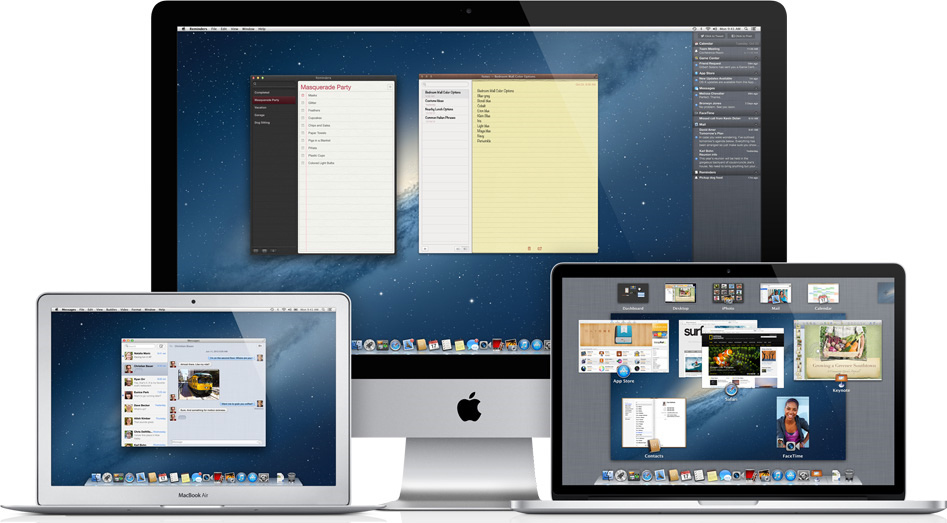Chief executive officer of Intel Corp. said in an interview that the company’s relationship with Apple was “growing closer”. Unfortunately, he did not reveal any details about the development of relationship, but he clearly demonstrated that the chip giant is interested in providing Apple what it needs to win.
“We have always had a very close relationship with Apple and it continues to grow closer,” said Brian Krzanich, chief executive of Intel, in a community interview at Reddit. “Sure it has grown close over the years especially since they started to use our technology in their systems. We are always trying to build the relationship with all of our customers to be closer. The former CEO Paul Otellini used to say ‘we win when our customers win’, it’s always stuck with me.”
Apple has been using Intel’s x86 microprocessors inside its Mac personal computers for about eight years now. While the companies most probably share opinions regarding features of the future Intel processors, it is unclear how significantly Apple can influence low-level design decisions. Back in the days, Steve Jobs complained in an interview with his biographer Walter Isaacson that Intel did not listen to Apple’s critics and wishes for mobile chips, which is why the company decided to design its own application processors for mobile devices and created one of the world’s most competitive chip design team.
“We tried to help Intel, but they do not listen much,” said Steve Jobs. “We have been telling them for years that their graphics suck. Every quarter we schedule a meeting with me and our top three guys and Paul Otellini. At the beginning, we were doing wonderful things together. They wanted this big joint project to do chips for future iPhones. There were two reasons we did not go with them. One was that they are just really slow. They are like a steamship, not very flexible. We are used to going pretty fast. Second is that we just did not want to teach them everything, which they could go and sell to our competitors.”
Apple will likely continue to use Intel’s x86 chips for its Macs for quite a while. The question is whether the company will adopt x86 chips for its mobile devices to significantly boost performance and/or allow Mac OS X apps to run on iPads. Yet another question is whether Intel is still interested in manufacturing mobile system-on-chips for Apple using its leading-edge manufacturing technology.
Intel’s code-named Broxton application processor for mobile devices with 64-bit x86 cores based on Goldmont micro-architecture will allow integration of third-party intellectual property sometimes in 2015, which is just what Apple needs since it already has a lot of proprietary IO in its A-series pprocessors. Therefore, in case the Goldmont brings significantly better performance compared to Apple’s third-generation ARMv8-compatible 64-bit cores, Apple could at least consider x86. The iOS is based on NeXTstep, so it can be ported to x86, but emulation will be needed to run third-party apps without recompiling.
Intel needs to keep its leading-edge fabs busy at all times and Apple needs steady supply of its A-series SoCs for its devices. Paul Otellini has never excluded a possibility to make chips for Apple, hence, it looks like a foundry deal between Intel and Apple is most likely a question of price. A rumour has it that Intel’s contract manufacturing services are 30% – 35% higher compared to those of Taiwan Semiconductor Manufacturing Co.
KitGuru Says: Now it is time to ask Tim Cook about Apple’s relationship with Intel and how close did the companies get recently. Unfortunately, Mr. Cook reveals even less details than Mr. Krzanich…
 KitGuru KitGuru.net – Tech News | Hardware News | Hardware Reviews | IOS | Mobile | Gaming | Graphics Cards
KitGuru KitGuru.net – Tech News | Hardware News | Hardware Reviews | IOS | Mobile | Gaming | Graphics Cards




“we just did not want to teach them everything, which they could go and sell to our competitors.” This shows Apple has no trust on Intel hence, there can never be a deal to make the A7, A8 SoCs for fear of trade-secrets being compromised. It has been Apple’s greatest fear in people copying their tech for market advantage against them.
I am sure Apple going TSMC is a very good reason as TSMC has had strong principles in supporting many competing customers without a single problem.
GF needs to learn such tricks that TSMC has done in order to expand their business to any other customers they might get. In fact, GF making chips for Apple would be a good thing but they have to ramp up and get beyond having AMD as a main customer.